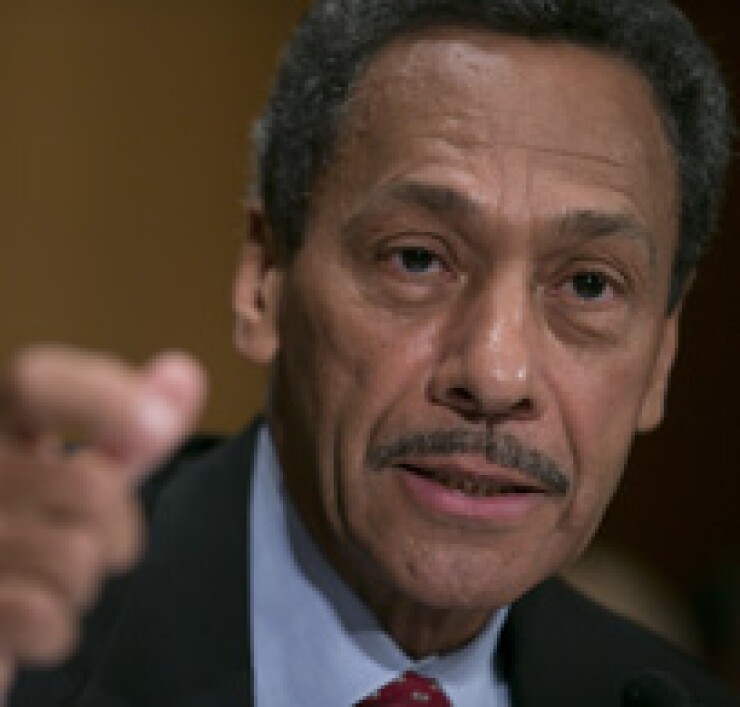
Congress created the Federal Housing Finance Agency in 2008 to be a strong and effective overseer of Fannie Mae and Freddie Mae. Under acting director Edward DeMarco, the FHFA has proven it can be a strong regulator and guide the two troubled government-sponsored enterprises back to profitability.
During DeMarco’s watch, the GSEs have reduced their bloated mortgage investment portfolios, launched huge loan modification and foreclosure prevention programs, and helped 2 million borrowers refinance their underwater loans.
The FHFA also gradually increased the fees Fannie and Freddie charge to guarantee loans along with loan level price adjustment fees. Fannie and Freddie started charging LLPAs during the recession. The extra LLPA fees are supposed to cover the risks of lending in markets with declining house prices and rising unemployment.
But increasing these fees has become a mantra at the FHFA as the acting director pursued a course of shrinking the government-sponsored enterprises’ share of the mortgage market. The higher fees will make room for private capital to return to the market, according to DeMarco, and reduce the government’s role in mortgage lending.
Housing groups have been chaffing under the FHFA’s agenda and some are hoping the in-coming FHFA director will recognize the loan fees are already too high.
President Obama nominated Rep. Met Watt, D-N.C., to be the new GSE regulator last May. Despite Republican opposition, it was clear by Thanksgiving that the veteran congressman would be confirmed by the Senate.
But DeMarco was preparing for another 10 basis point increase in the g-fee along with higher LLPA fees that would take effect in early 2014.
DeMarco announced the fee hikes on Dec. 9 one day before the Senate voted 57-41 to confirm Watt to be the new FHFA director.
Watt’s confirmation vote emboldened opponents of the fee hikes.
The National Association of Federal Credit Unions was one of the first to call on the FHFA to “reverse course” and rescind fee increases.
“NAFCU does not believe that these actions are appropriate because the cost of borrowing will greatly increase and lending will inevitably slow down,” NAFCU president and chief executive Dan Berger says in a letter to DeMarco.
Others questioned DeMarco’s thesis that raising Fannie and Freddie loan fees will spark a resurgence of the private-label mortgage-backed securities market.
This put Watt in an awkward spot. He is not going to be sworn-in as the new FHFA director until Jan. 6. Yet he had to defuse the unrest and uncertainty caused by the current acting GSE regulator.
So Watt issued a statement Dec. 20 saying he will delay the effective dates of the fee hikes once he is sworn-in on Jan. 6. And he doesn’t want lenders implementing the fee hikes until he has a chance to thoroughly review the matter.
“I felt it was important to announce my intention now because of the prospect that some lenders could start to price the changes...well before the effective dates,” says Watt.
The long-standing member of the House Financial Services Committee has not expressed his views on the loan fee issue or many other issues he will face as the new GSE regulator.
Watt is expected to settle in at the FHFA and take his time reviewing the operation and assessing what needs to be done. He is well-known as a thoughtful and deliberative legislator.
But postponing the loan fee hikes has signaled that Watt will be more concerned about credit availability than shrinking the GSEs.
“We view this action as confirmation that incoming director Watt will place the cost and availability of credit at the center of his decision-making, which, if successful, will allow for the expansion of mortgage credit availability,” says FBR Capital Markets analysts Edward Mills.




